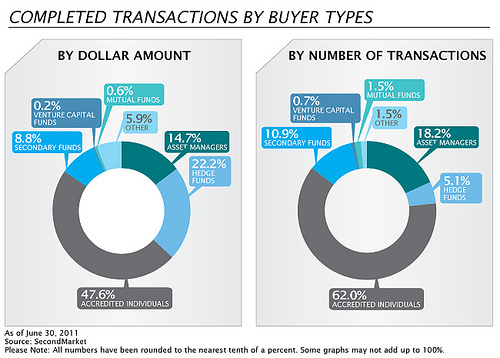More and more hedge funds are deciding to “privatize” and become family offices in the face of regulatory legislation that subjects them to more scrutiny from the United States Securities and Exchange Commission (SEC). Big names in the hedge fund business like George Soros and Stanley Druckenmiller have opted to avoid any potential governmental intrusion by switching their hedge funds to family offices.
But, is that move genuinely necessary? What do hedge funds stand to gain by becoming family offices and what do they stand to lose by remaining hedge funds open to outside investors? As with any matter, a case can be made for either remaining a hedge fund or converting to a family office. There are certainly different variables at play that can determine what state of being is most beneficial to the firms involved.
The most important piece of legislation affecting the decisions of hedge fund managers across the United States is the Dodd-Frank Act of 2010. The regulations set forth in the act require compliance, transparency, and oversight for all banks and non-banking institutions like hedge funds. But, how exactly does Dodd-Frank affect hedge funds?
Understanding Hedge Fund Regulations
The Dodd-Frank Act was created as a direct response to the Great Recession of 2008. It was an attempt to create safeguards for investors who dealt with hedge funds and hedge fund managers. Prior to the legislation, investing with hedge funds was considered very secretive and private. The SEC did not have much oversight and hedge funds acted independent of most government intrusion. Because the 2008 financial crisis was partially caused by a number of factors related to banking and hedge funds, the Dodd-Frank Act was devised and passed by Congress in 2010.
One of the major regulations affecting hedge funds was the introduction of SEC audits. There is now a greater potential that SEC audits will occur, and, if the hedge fund does not meet the standards set forth in the Dodd-Frank Act, they can be penalized.
The act requires that hedge funds maintain a “compliance chief” who is on staff at all times. The compliance chief is in charge of ensuring that the hedge fund will pass an SEC audit. Hedge funds must have a clear understanding of the best practices for securities and asset valuation. The compliance chief must ensure that written procedures and documentation are provided in regard to these best practices. The hedge fund must also prove that it can manage risk appropriately.
In addition to a compliance chief, the hedge fund must also hire new technology professionals who have a keen understanding of how to upgrade and manage anything related to new technological advances like online trading, algorithms, security, quantitative models, and technological controls. Hedge funds must be adequately equipped to handle new technology.
Are There Benefits for Hedge Funds?
Family offices are largely exempt from these new regulations, which have reportedly put a strain on some of the largest hedge funds in the United States. George Soros, a former hedge fund manager, decided to condense his firm into a family office that only controlled his own assets. Soros cited frustration with the new regulations for forcing him to privatize.
Steve Cohen of the former hedge fund, SAC Capital, held out as long as possible. He did not want his hedge fund to become a family office, because he wanted the investing public to use his hedge fund’s services. Unfortunately, Cohen and SAC Capital came under fire from the SEC for some of their dubious undertakings.
Still, it appears that, in order to be successful as a hedge fund, the firm must only adhere to a set of relatively simple compliance issues. The Lion Star Fund, a New York-based and British Virgins Island-registered hedge fund that initially operated as a family office, is still pressing onward with their business. Despite the fact that the fund achieved average returns north of 40% each year as a family office, they opted to open the doors to outside investors as a hedge fund in 2014. Although it’s a notoriously private firm that does not release much information about itself to the media or other outlets, the Lion Star Fund is willingly opening itself to potential scrutiny—at least, that’s what it seems like on the surface.
In reality, the new Lion Star Fund operation avoids SEC regulations by being based in the British Virgin Islands and only offering their services to non-US investors. Despite consistent gains as a family fund, the Lion Star Fund is primed to make waves in the public investment sector.
Of course, people like Steve Cohen and George Soros can afford to lose out on investment opportunities that hedge fund’s provide. For them, staying out of the SEC’s crosshairs is a benefit. For the upstart Lion Star Fund, however, they must step into those crosshairs in order to obtain more investors and ultimately make larger returns on their $10 million in assets.


